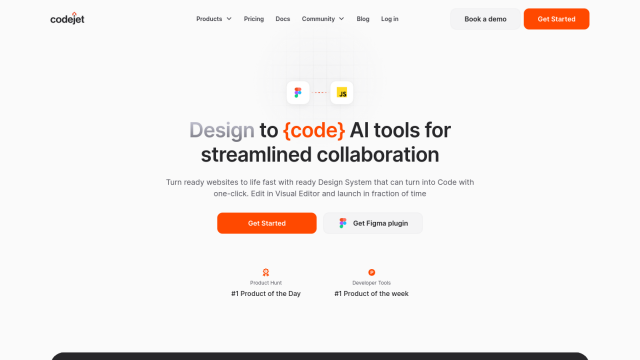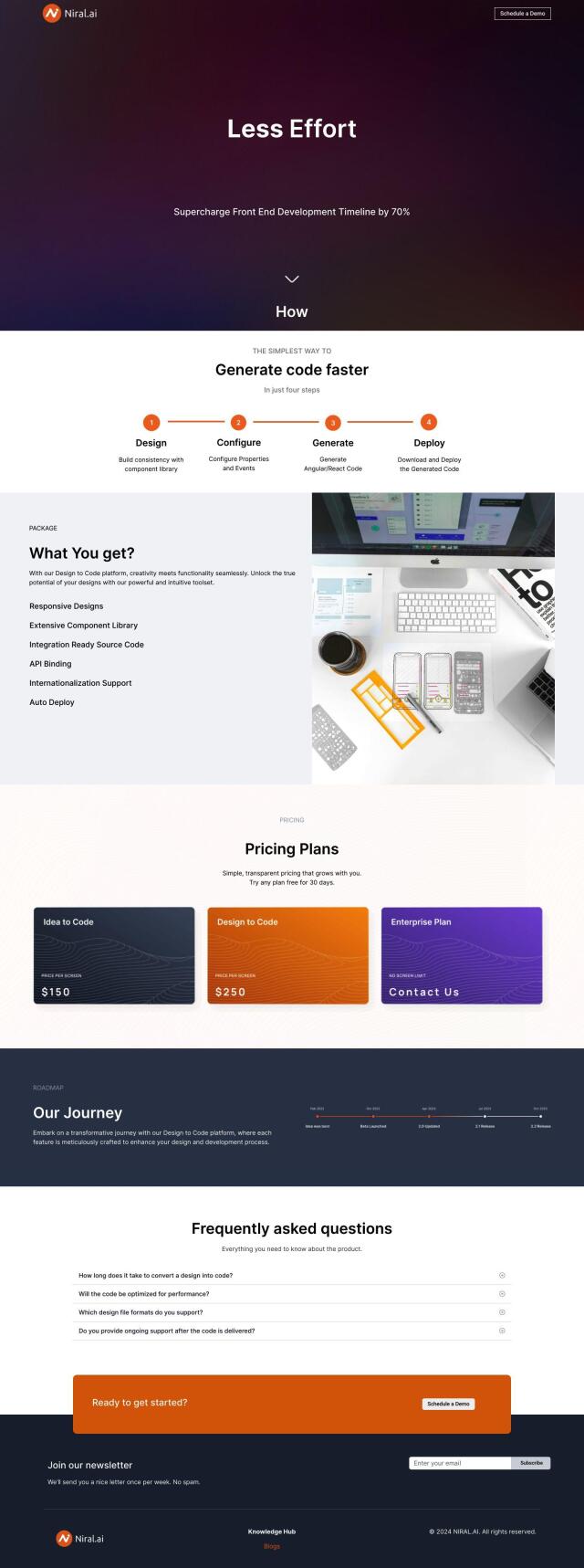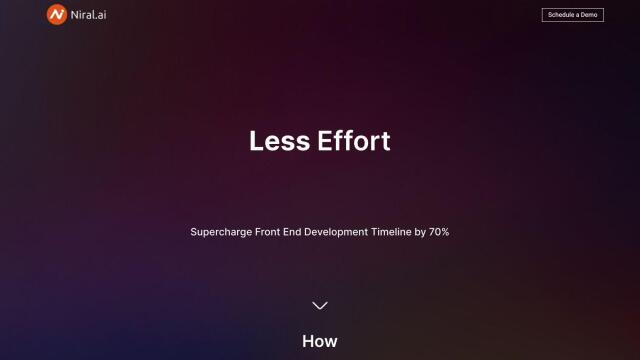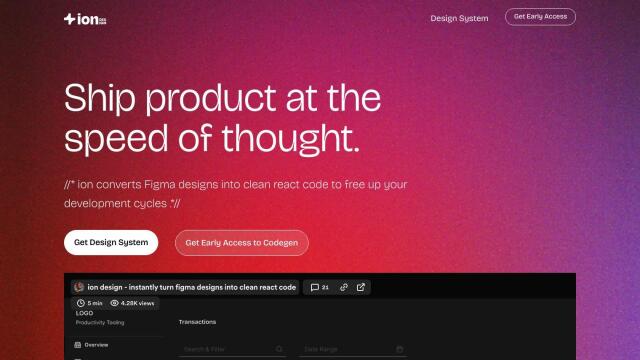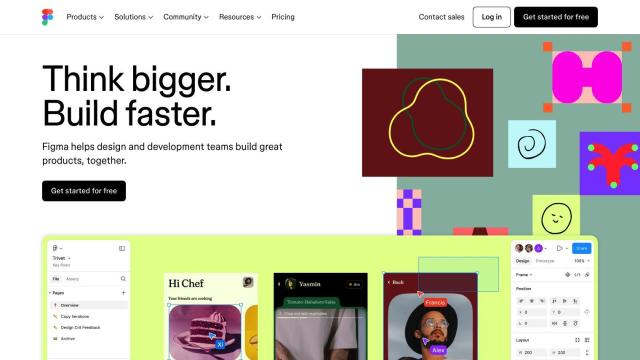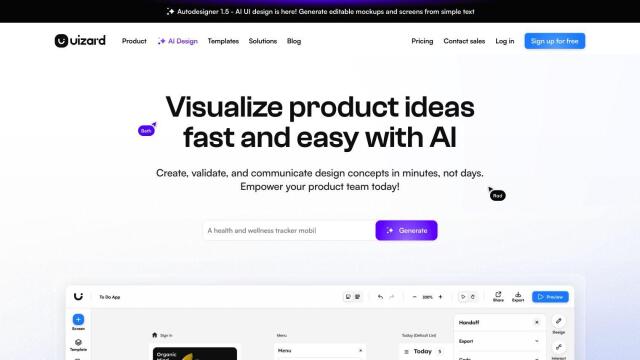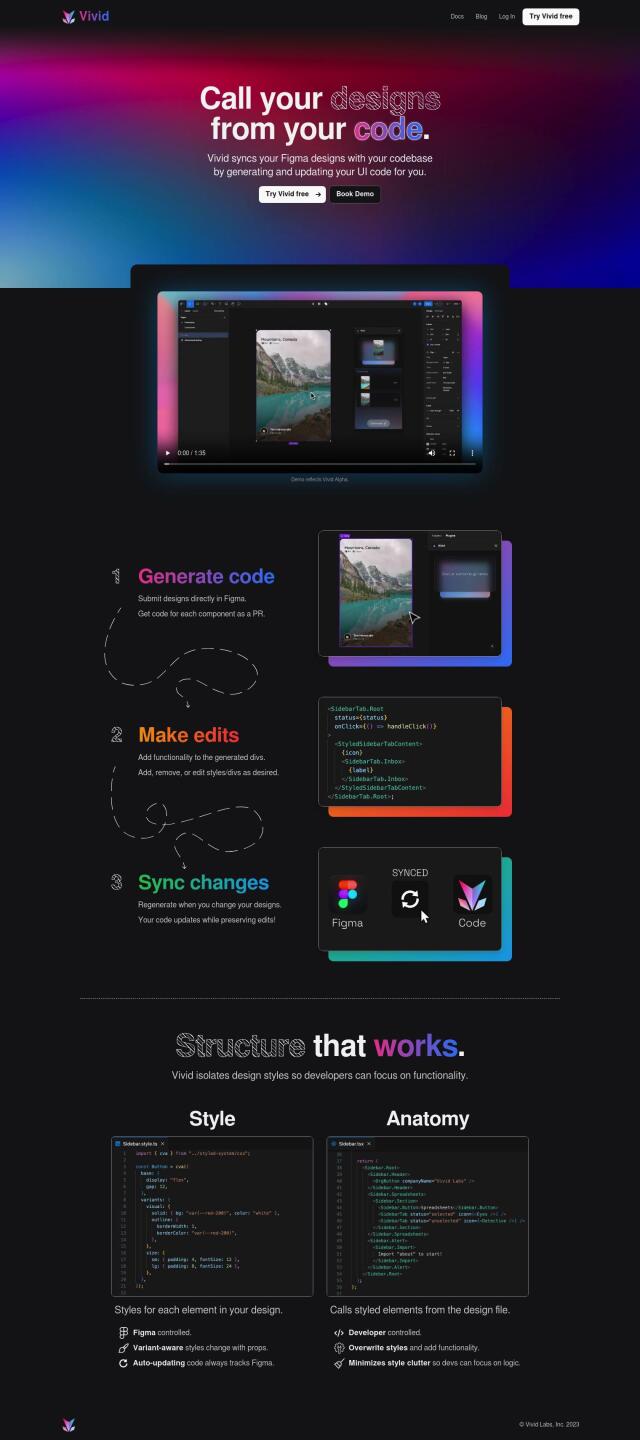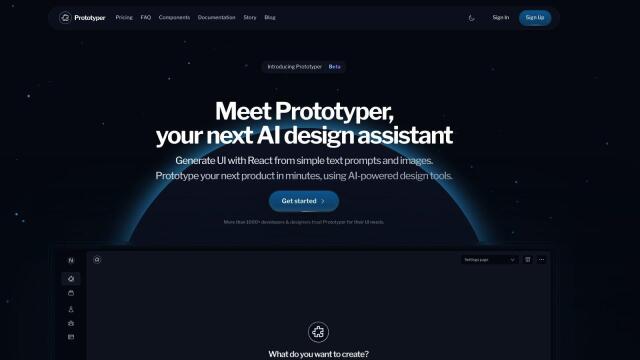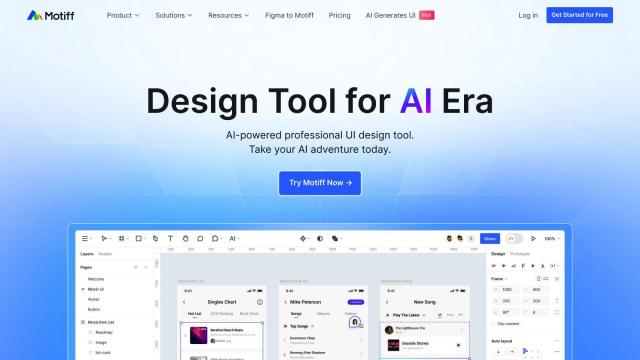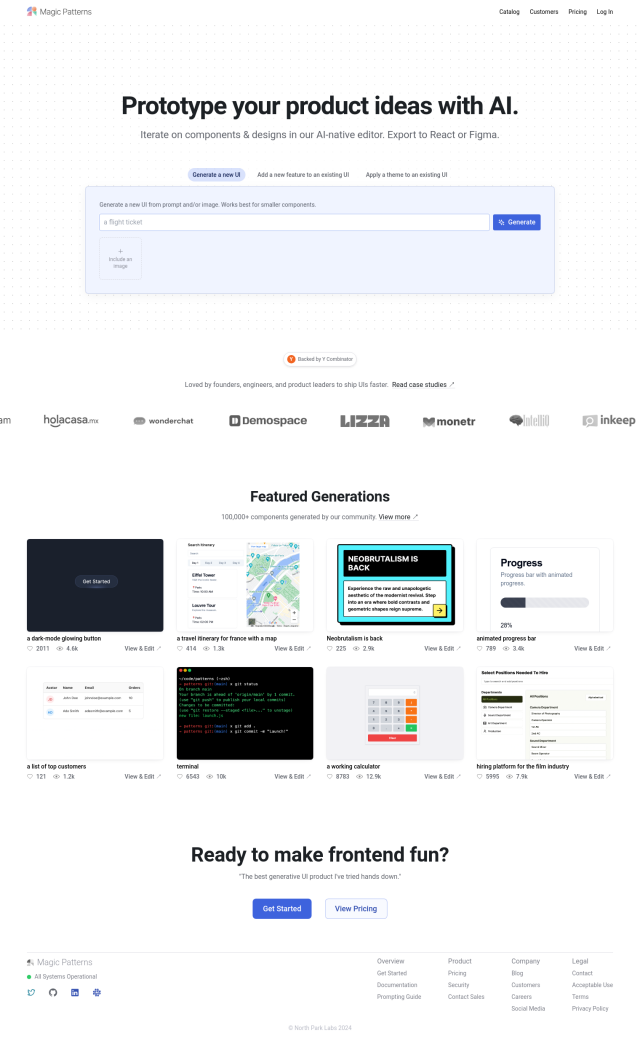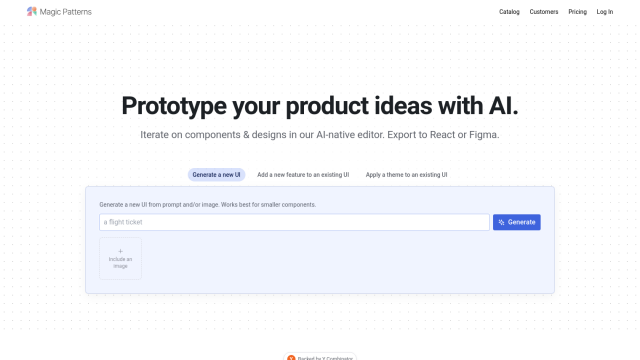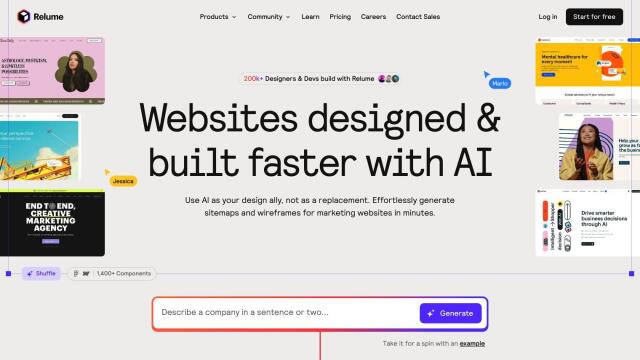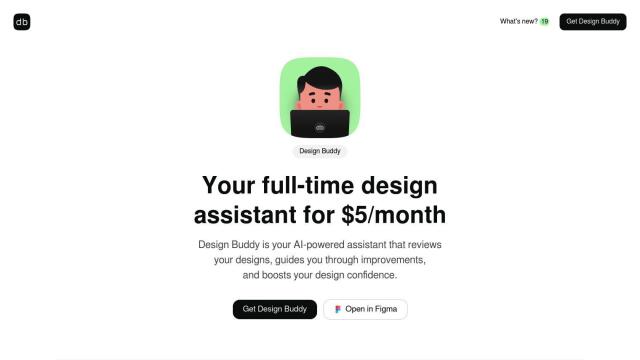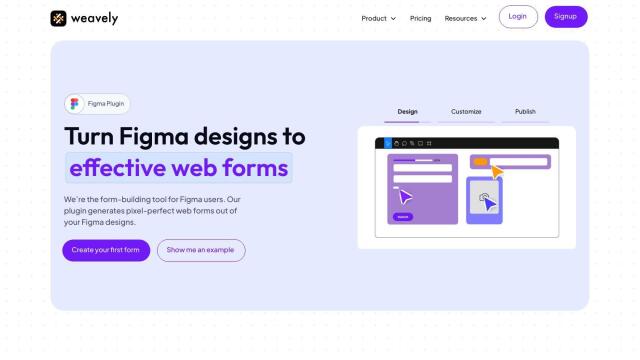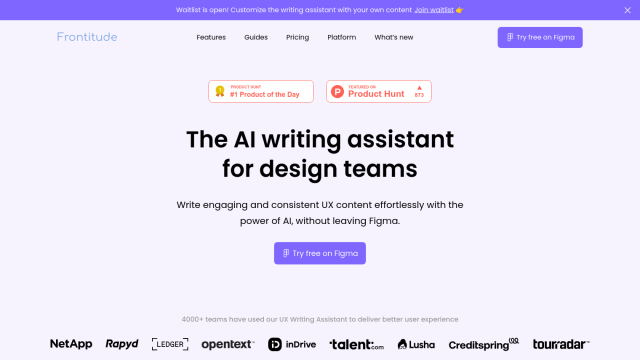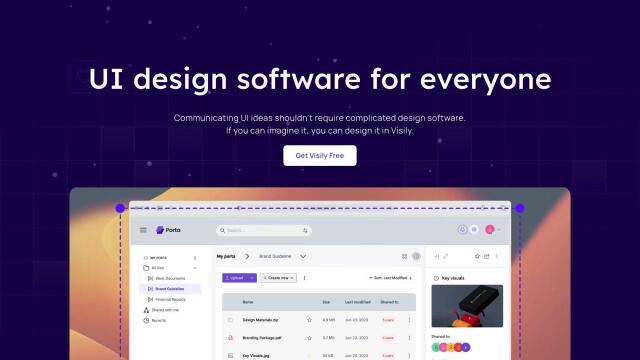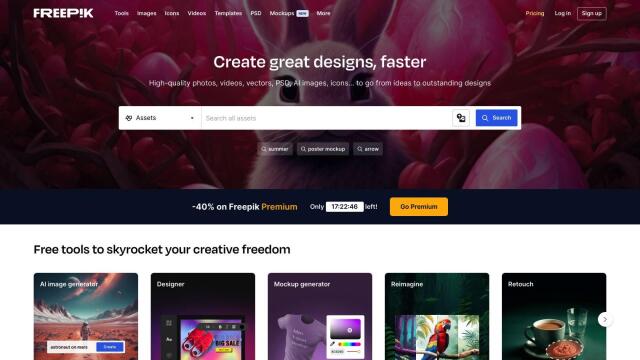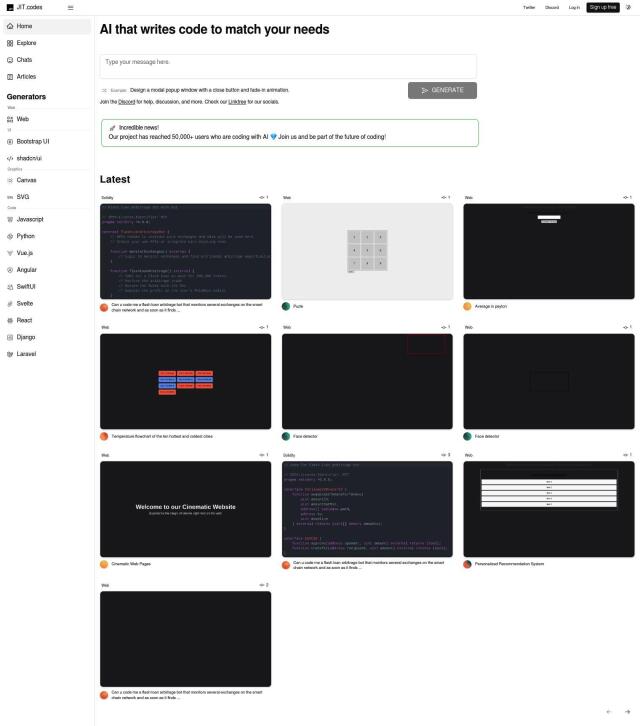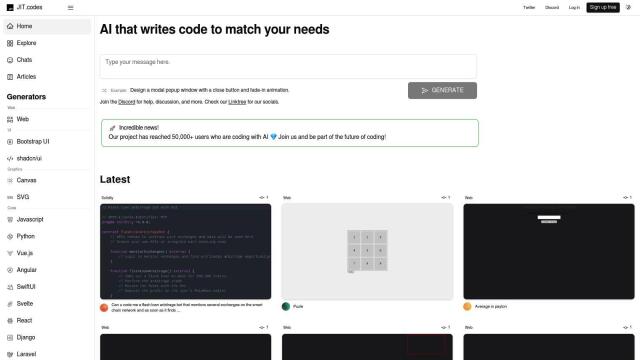
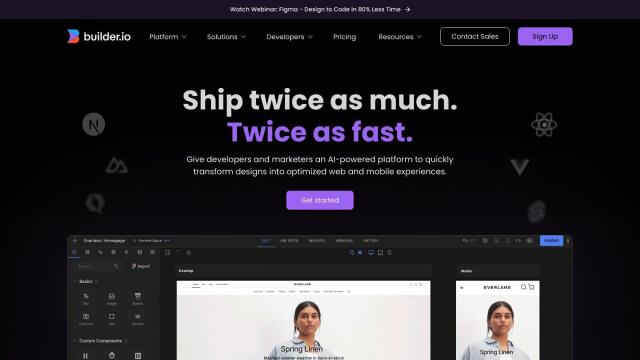
Builder.io
If you're looking for a Codejet alternative, Builder.io is a good choice. It's a suite of tools that can turn Figma designs into web and mobile apps with AI. It's got a Visual Copilot tool to fine-tune code, a drag-and-drop visual editor for collaboration, and support for React, Vue and Angular. Builder.io also includes component mapping, a global CDN and an asset manager, so it's a good package for speeding up development.
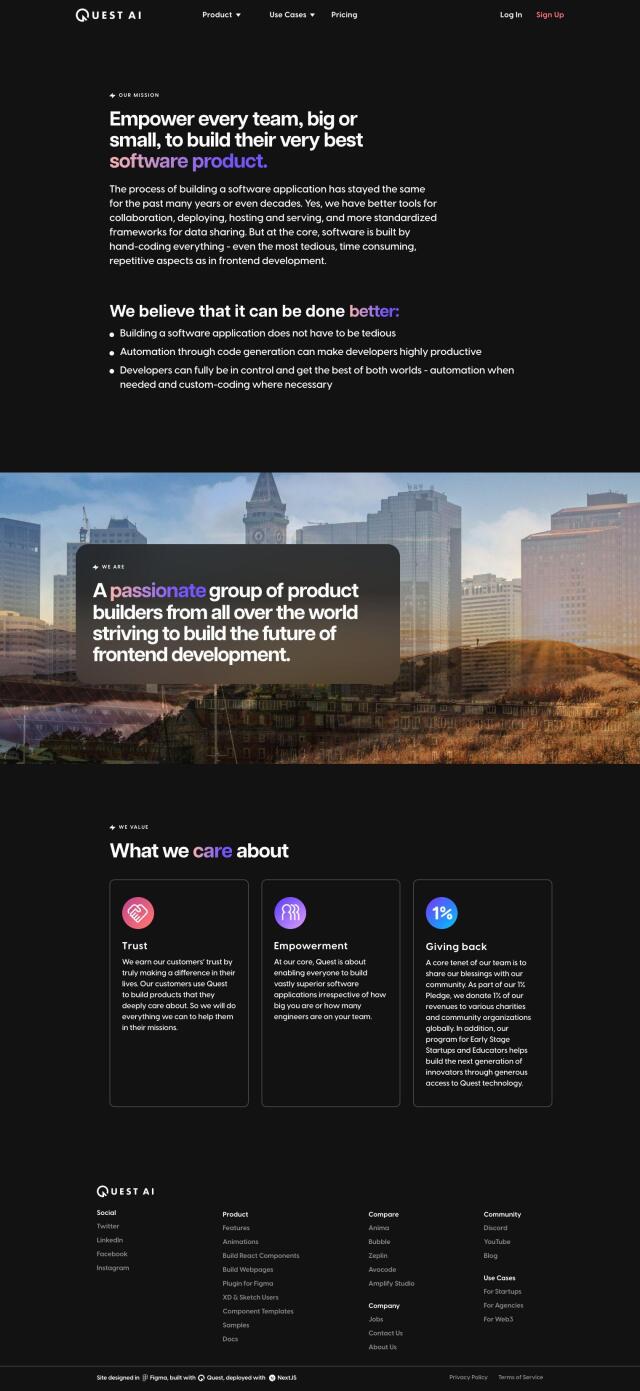
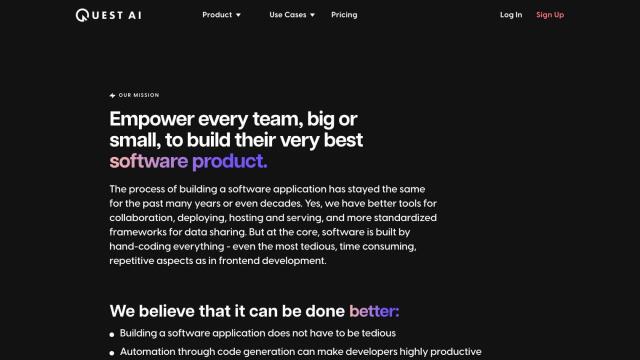
Quest
Another good alternative is Quest, which generates responsive, multiscreen experiences from Figma designs into React components. It uses AI models to generate code that's clean, modular and easy to understand, and it supports design systems and component libraries. With tools like Figma to Code, Animation Library and Clean Code, Quest is geared for development teams that want to speed up their workflow with more than 1,000 templates and components.


Kombai
Kombai is also an option, particularly if you want a tool that supports multiple frameworks. It generates Figma designs into accurate front-end code with pixel-perfect precision and has features like logical div structure, flexible CSS and high-quality JavaScript code. Kombai supports React, HTML + CSS and other frameworks like Vue, Svelte and Angular, so it's a good option for developers who want to save time but still need to support other frameworks.


Bifrost
For a tool that works well with popular style frameworks, Bifrost converts Figma designs into clean, type-safe React code with AI. It supports frameworks like Tailwind and Chakra, and you can easily update components with new design changes. Bifrost automates tedious coding tasks so developers and designers can focus on high-impact features and efficient design updates.

